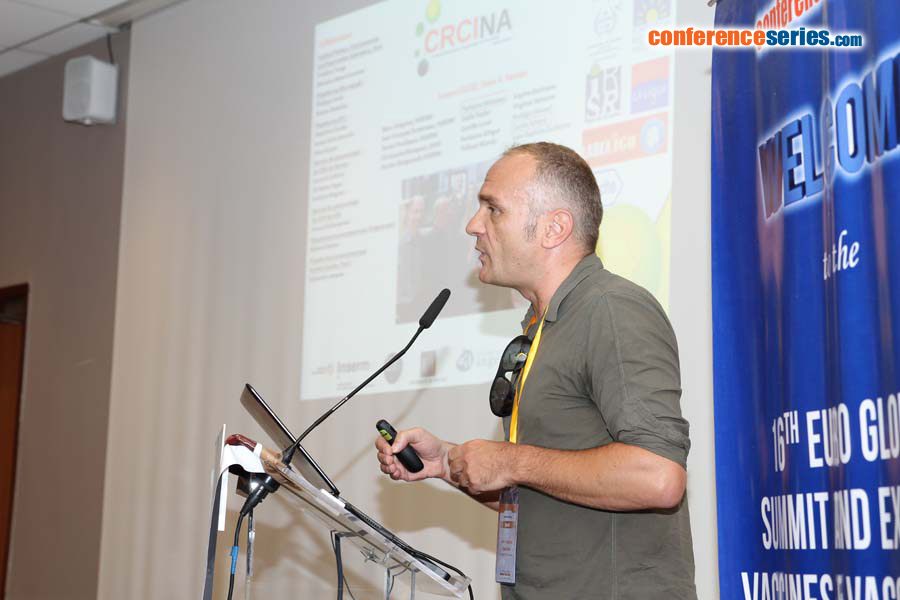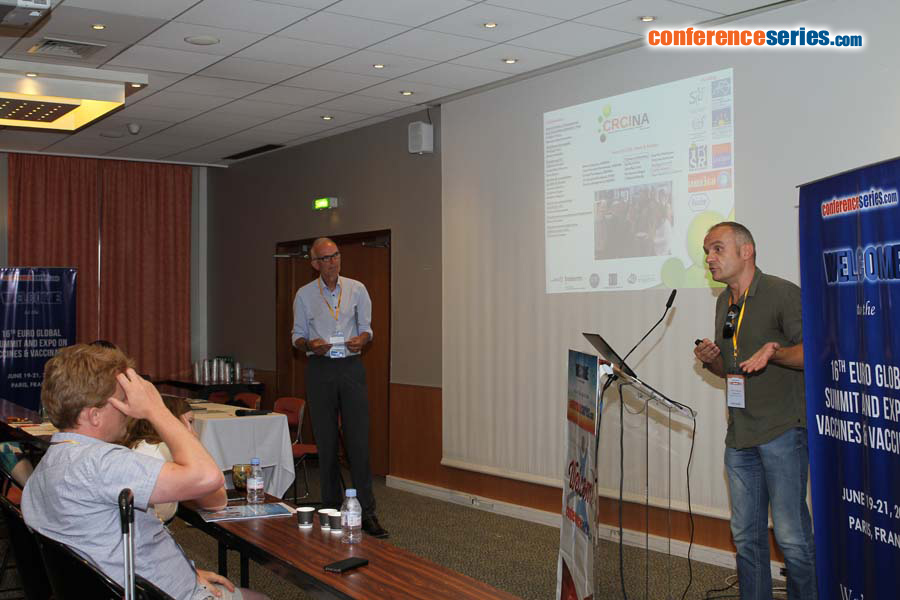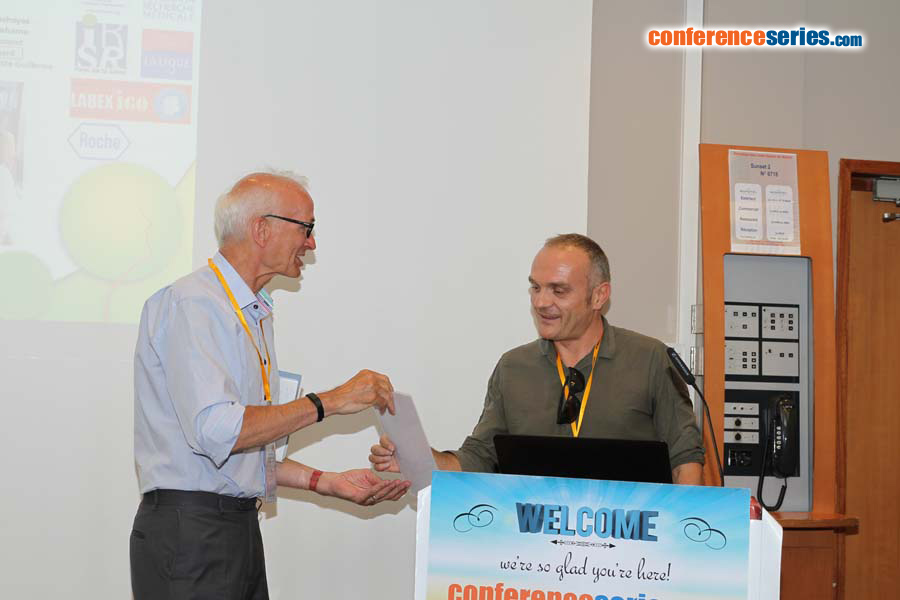
Jean-Francois Fonteneau
University of Nantes, France
Title: Exploiting defects of type I interferon response in tumor cells for oncolytic immunotherapy with attenuated measles virus
Biography
Biography: Jean-Francois Fonteneau
Abstract
We studied oncolytic immunotherapy using the live attenuated Schwarz strain of measles virus (MV) in collaboration with Dr. Frédéric Tangy from Institut Pasteur. This oncolytic virus preferentially infects and replicates in tumor cells and triggers their cell death while sparing healthy cells. Recently we characterized what make melanoma or mesothelioma tumor cells sensitive to this virus. We show that 70% of tumor cell lines are sensitive to the oncolytic activity of MV, whereas the different types of healthy cells and the other tumor cell lines exhibit no or low sensitivity. We observed overexpression of the MV entry receptor CD46 on the surface of the majority of tumor cell lines compared to healthy cells. However, the sensitivity of tumor cell lines to the oncolytic activity of MV cannot be explained by the expression level of the CD46 molecules. Thus, we studied the type I IFN response of tumor cell lines exposed to MV or type I IFN by a transcriptomic study. We found that the tumor cell lines that are sensitive to MV oncolytic activity develop a partial type I IFN response in presence of MV and are thus unable to control the viral replication. On the contrary, the four types of healthy cells and the resistant tumor cell lines develop a complete type I IFN response, preserving them from the viral replication and lysis. We then found that the most frequent defect of the type I IFN response in MPM cell lines that are sensitive to MV oncolytic activity is the deletion of both alleles of the genes encoding type I IFN (IFN-a and -b). Altogether, our results show that the sensitivity of tumor cells to MV oncolytic activity depends on defects of the type I IFN response that are frequent in cancer.




